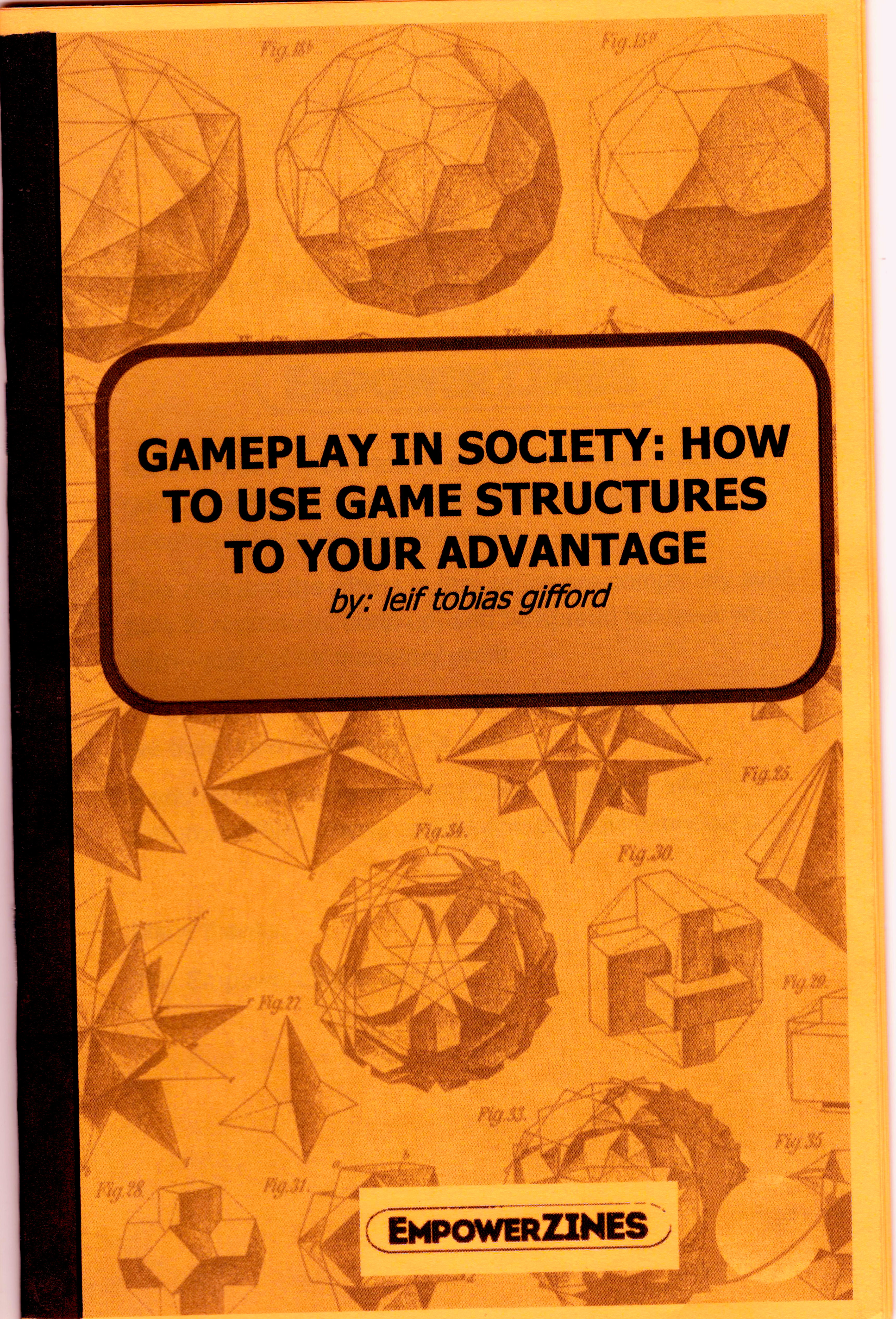
Gameplay in Society: How to Use Game Structures to Your Advantage
Zine, Leif Tobias Gifford, 24 pgs, @achievingfusion, EmpowerZINES
How can a game change the world? That’s the question asked by Leif Tobias Gifford in this digest-sized zine, printed on orange paper. It is part of a zine series called EmpowerZINES by Gifford’s Boundless Media outfit. Gifford is clearly and deeply interested in games and gaming, broadly construed. The zine aims to posit gameplay as not just a pastime but an approach to life, a way of interacting, a means of construing and re-construing reality. Games are also, for Gifford, a means to an end: a way of building skills to “game” societal strictures and bend social confines to create change and smash oppressive barriers. How games can help accomplish social change isn’t fully fleshed out, but the premise makes for an interesting ride. Gifford takes the reader through some heady territory, exploring key concepts like mapping, structures, and gameplay itself. This entails a detour into philosophy, where Gifford embraces post-structuralism as a helpful, inclusive starting point for game-making.
Interspersed among those dalliances with theory are short notes and images capturing examples of different games and their logics: those based on iterative design, like sudoku; live action roleplay (LARP); virtual reality; riddles; even camp games. Gifford gives helpful introductions to each of these, but it’s not clear how these connect to the stated purpose of showing how to change society with gaming.
Nevertheless, it certainly seems like Gifford is on to something and their passion is undeniable.
If you’ve had a hunch that there’s something revolutionary about games, track this one down and see if it clicks for you.
